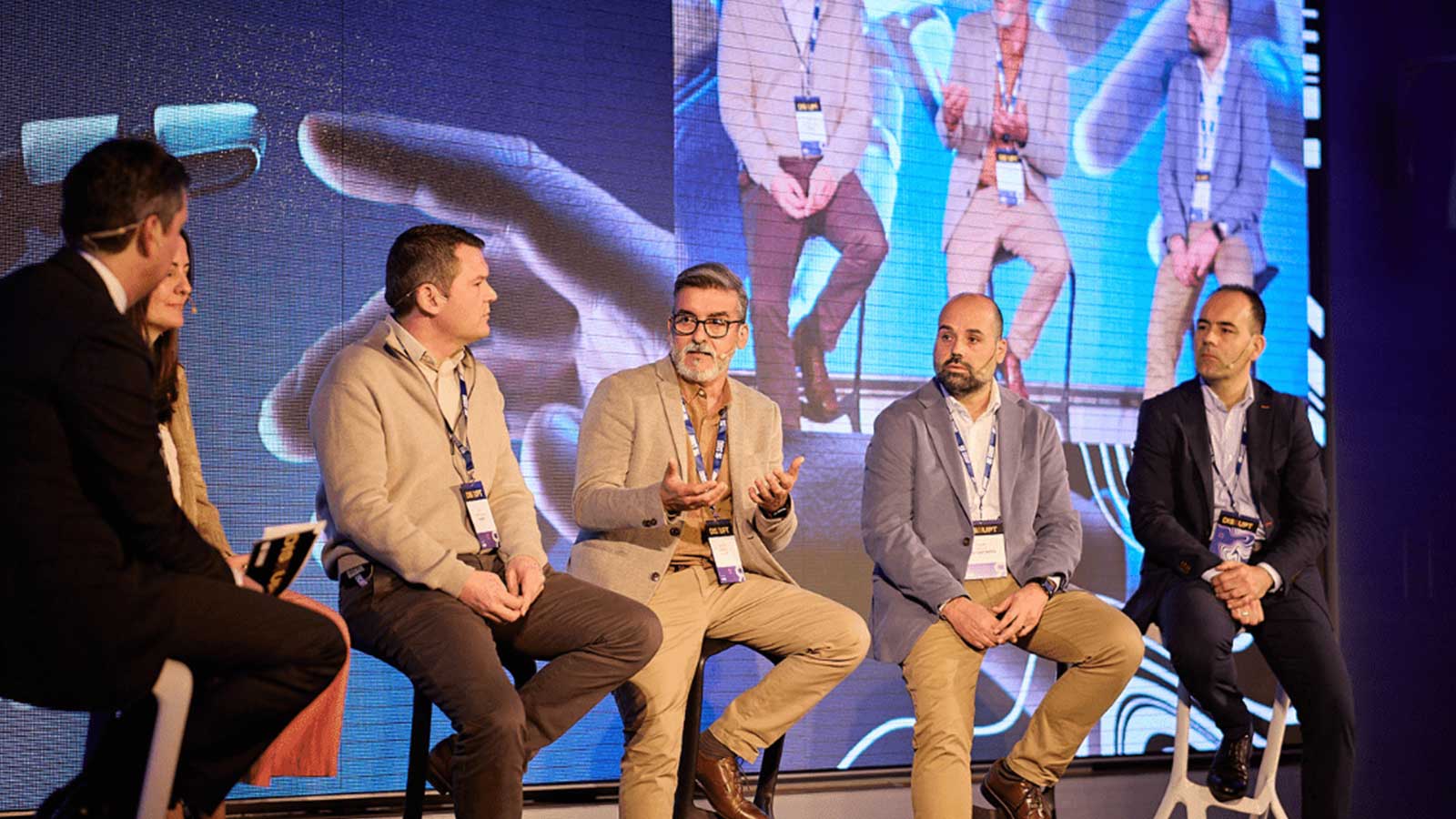How Generative AI Is Changing Customer Service
Understanding the challenges and opportunities in employment and efficiency with GenAI tools for customer service and support tasks.
Generative Artificial Intelligence is redefining not only how brands interact with customers, but also how they optimize their internal resources to deliver more personalized and efficient services.
This was one of the conclusions reached at the recent edition of Disrupt 2024, Sabio Group’s flagship event dedicated to customer (CX) and employee (EX) experience, where industry leaders and technology experts gathered in Madrid to explore and debate the future of Gen AI and its transformative impact on customer services and operational efficiency.
Tangible Applications and Benefits of Customer Service Generative AI
During one of our panels at the event, several use cases were highlighted where Generative AI has begun to significantly impact the customer and employee experience. “This year, Generative AI has offered all companies the opportunity to test new tools, and we expect 2024 to mark the beginning of projects with relevant impact,” said Armando Martínez Polo, Partner in charge of Technology Consulting and AI at PWC and moderator of this panel that included the participation of brands such as Vodafone, Adamo, Pluxee and AXA.

Undoubtedly, one of the sectors where customer service is more important than most is the telecommunications sector. In fact, for Ruth Martín, Customer Service Channel Development Manager at Vodafone, the arrival of generative AI is radically changing customer service in her company. She said: “AI allows us to analyze customer data in real time, tailoring our messages to their specific needs and emotional states, which redefines personalization in customer service,” she explained. This capability not only improves the customer experience but also optimizes processes and reduces costs.
From AXA, Ramses Sot, Transformation Manager, provided valuable insight into how generative AI is being integrated into the insurance industry, an area where personalization and efficiency are crucial. The expert highlighted how AXA is using AI to improve customer service in complex situations that require more human and personalized treatment. “What you have to try to see in technology is a way to make things simple and fast for the customer and to ensure human value in the face of the problems that really matter to the customer,” said Sot. This approach demonstrates the potential of this advance to complement, rather than replace, human interaction in customer services, ensuring that technology serves as a support and not a substitute for the essential human experience in insurance.
Generative AI: Economic and Employment Impact
In this regard, another central theme of this panel revolved around the impact of Generative AI on employment, a concern expressed by participants and experts alike. Ruth Martín from Vodafone again highlighted how adapting to these new technologies requires a revolution in training and job skills. “Like any revolution, the transformation is rapid and we must be prepared to adapt to new roles and market needs,” she said.
This sentiment was echoed by José Luis Plasencia, CIO & COO for Spain and Portugal at Pluxee, who noted that while 80% of his clients’ employees are concerned about the possibility of AI replacing their jobs, the focus should be on reskilling, not eliminating positions. “It is not specific job positions that are going to disappear, but those tasks that artificial intelligence can optimize,” Plasencia said.

Disrupt Madrid also acted as a platform to discuss the economic impact of these technologies. According to data presented at the panel, the cost of training advanced models such as Gemini can reach $190 million or $80 million for models such as OpenAI and Microsoft’s GPT-4, highlighting the significant investment needed to adopt these technologies on a large scale. “Adopting generative AI is not just a matter of technology, but of carefully assessing its cost-effectiveness and its impact on productivity,” said Martínez Polo. The differentiation between productivity and competitive advantage was a recurring theme, suggesting that companies should focus on AI applications that offer clear and differentiating benefits.
Challenges and Ethical Considerations of Customer Service Generative AI
In addition to the benefits, the panelists addressed the challenges inherent in using Generative AI, including data security and customer privacy. “Trust and ethics are critical when implementing any form of artificial intelligence,” said José Luis Plasencia of Pluxee, who considered the regulation of AI and its alignment with social and ethical expectations ‘crucial to the future development of these technologies’.
Thus, Madrid Disrupt 2024 closed with a renewed commitment to responsible innovation and the development of solutions that not only improve business efficiency, but also strengthen human connection. “Our goal is to ensure that every interaction is more human, more personal and more efficient, thanks to the power of generative AI,” concluded Daniel Gil, AI and automation specialist at Sabio.

Comments are closed.